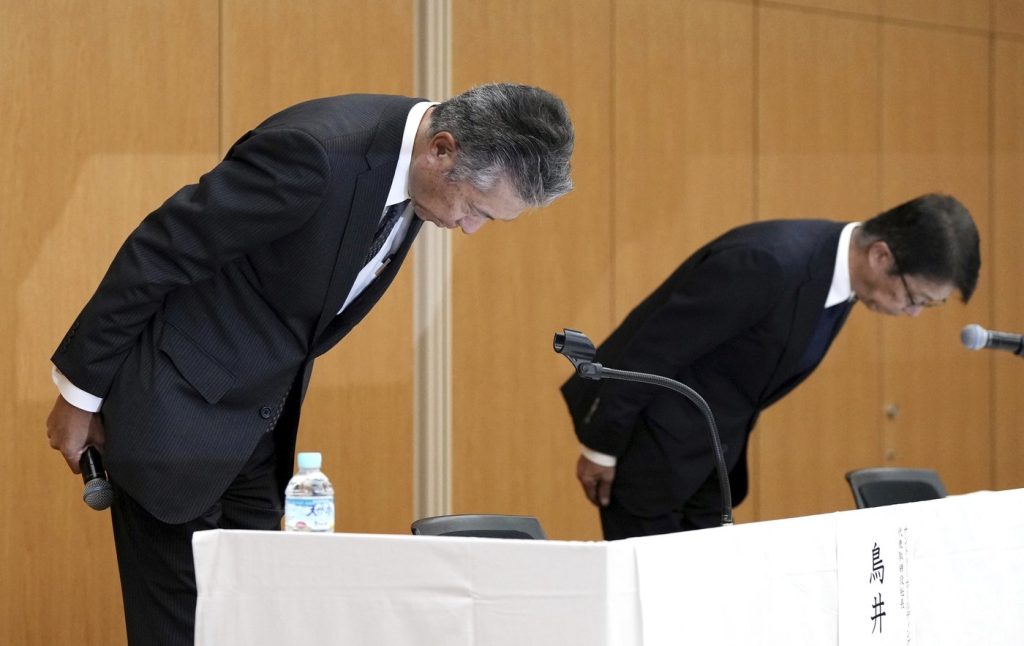TOKYO (AP) – In a significant development in the corporate landscape of Japan, Takeshi Niinami, the chief executive of Suntory Holdings, has resigned amid an investigation related to the alleged possession of an illegal drug. This decision, announced on Tuesday, marks a notable shift for the major beverage manufacturer known for its whisky, beer, and non-alcoholic beverages.
Nobuhiro Torii, the president of Suntory and a member of the company’s founding family, confirmed the acceptance of Niinami's resignation during a press conference. While addressing reporters, Torii chose not to disclose specific details regarding the type of illegal drug Niinami is being investigated for, citing that the case remains ongoing.
Niinami, who is 66 years old, is considered a prominent figure in the business community of Japan. He has been credited with leading Suntory through a period of robust growth since he took over as chief executive in 2014. Torii expressed deep respect for Niinami, highlighting his dynamic and decisive leadership that had driven substantial increases in both sales and profits over the past decade.
Despite the commendations, the company’s leadership acknowledged that Niinami's resignation was unavoidable due to "governance issues." This reflects a cultural aspect prevalent in Japan, where individuals who cause embarrassment to an organization often resign to maintain accountability and uphold the principle of avoiding shame.
Vice President Kenji Yamada emphasized that regardless of the outcome of the investigation—innocent or guilty—Niinami was deemed unfit for his role. Furthermore, Torii and Yamada suggested that the substance in question could have been a dietary supplement that Niinami had acquired for personal use. They mentioned that Niinami had stated he was unaware that the supplement was illegal.
The police investigation concerning Niinami began last month. Neither Torii nor Yamada provided additional details on the ongoing investigation, maintaining a level of discretion amidst the unfolding situation. Interestingly, the announcement of Niinami’s resignation occurred after stock markets had closed, and Suntory's shares saw a rise of 2.9% on the same Tuesday, indicating a market reaction to the news.
Suntory, established in 1899, has built a reputation for its diverse range of products, including whisky and soft drinks, and also operates in the supplementary health products sector. The company now faces the challenge of determining leadership in light of this unexpected resignation as it navigates the repercussions of the ongoing investigation and its impact on corporate governance.
As Suntory moves forward, the immediate leadership will continue under Torii, who indicated that he would take full responsibility for the company, including its international operations. The outcome of Niinami's legal situation could have further implications for Suntory and its strategic direction in the competitive beverage industry.










